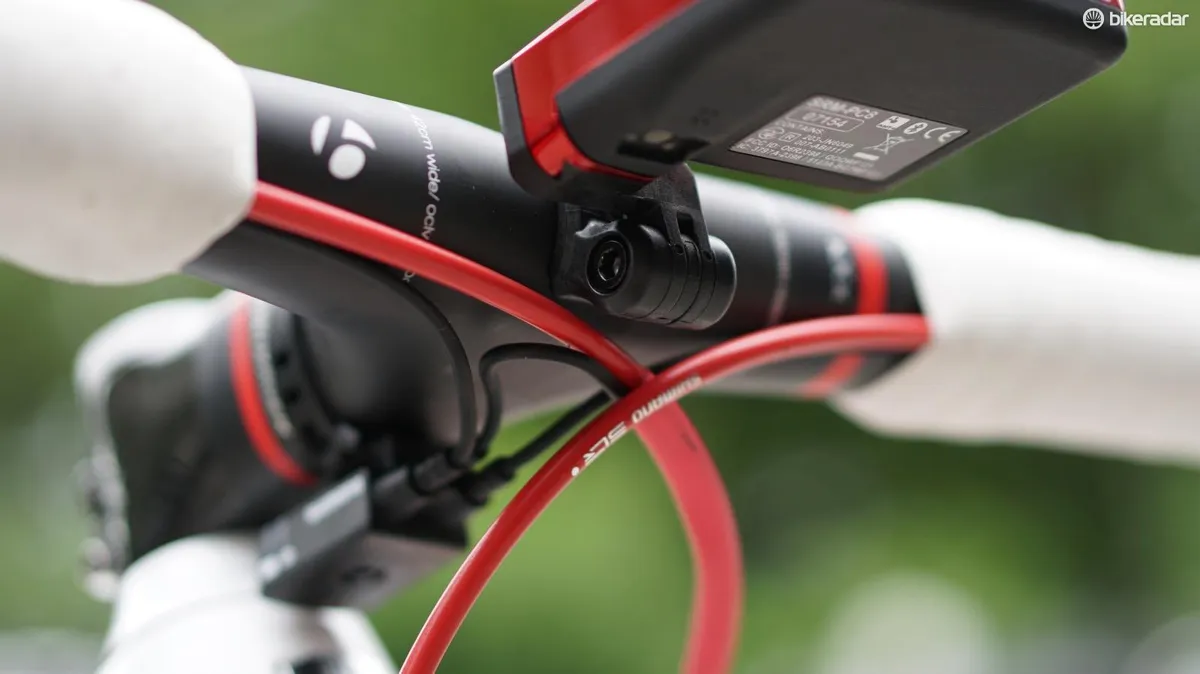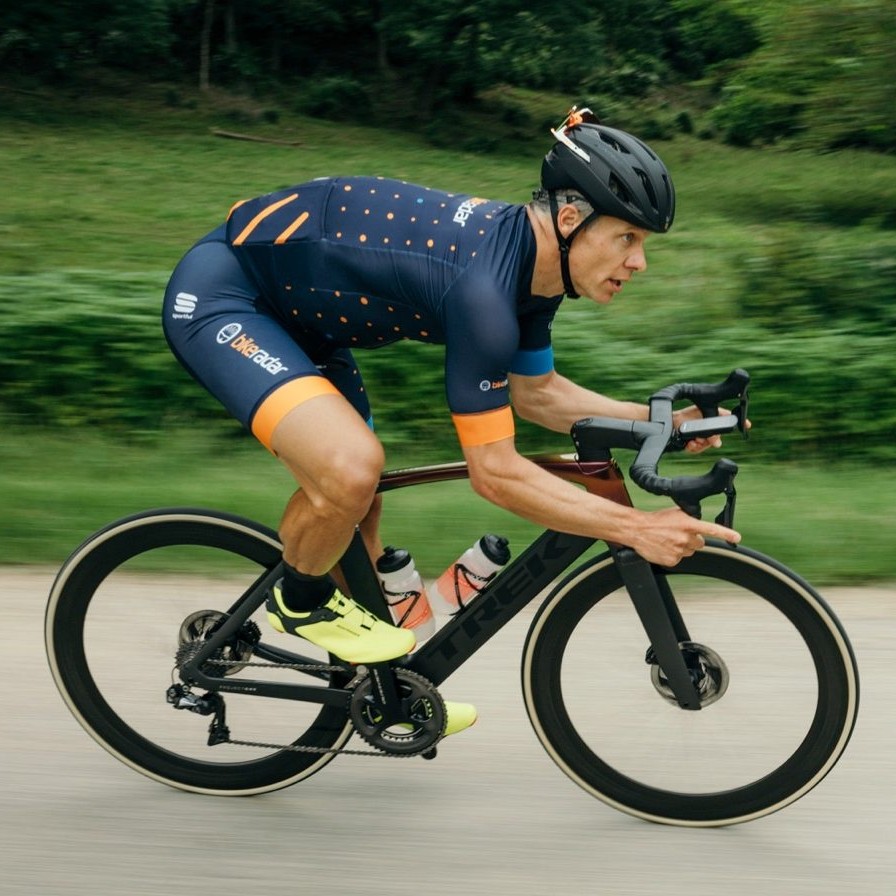The 2017 Tour de France isn’t Alberto Contador’s first rodeo. And while he is happy to race the latest and greatest of many things – such as the new 640g Trek Emonda frame – he also has a few older products that he will continue using, thank you very much.
- New Trek Emonda breaks the 650g barrier
- Trek Emonda SLR Disc first ride review
- Tour de France bikes, gear and tech
Out with the old and in with the new, apart from a few Contandor favourites
Old 9000 calipers for adjustment
Contador and the rest of his Trek-Segafredo Tour de France team has Shimano’s brand-new Dura-Ace 9170 Di2 group. But Contador requested 9000 series brake calipers because he can adjust them on the fly.
The 9100 have a quick-release lever that looks similar to that of a 9000 caliper. However, with 9100 it is either open or closed. While you can leave the lever partway between, the brake caliper will pop open if you pull the brake lever hard enough.
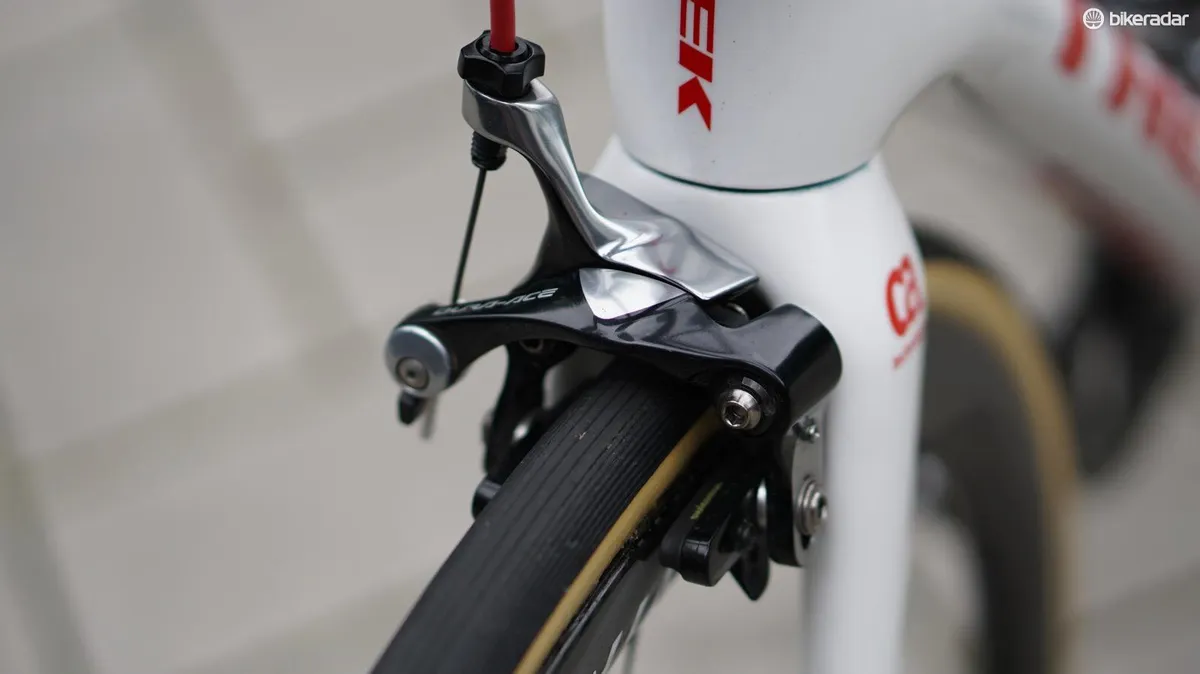
There are a few reasons Contador could want to adjust his caliper on the fly. One, if he gets a wheel change because of a flat, he could adjust if the new wheel’s rim width is different than his stock Bontrager Aelous 3.
Another reason could just be habit: Contador has long popped his calipers open at the bottom of critical climbs. While it is unlikely that his Bontrager wheels or Emonda frame is flexing enough to cause brake rub, it is certainly possible.
Whatever the case, Contador wants control of caliper width.
Shimano 11-speed SRM
SRM has been making power meters for decades now, and many pro riders are loyalists. When Shimano announced it was going to produce a power meter, SRM decided to stop supporting new Shimano cranks, and thus there is no 9100 series SRM.
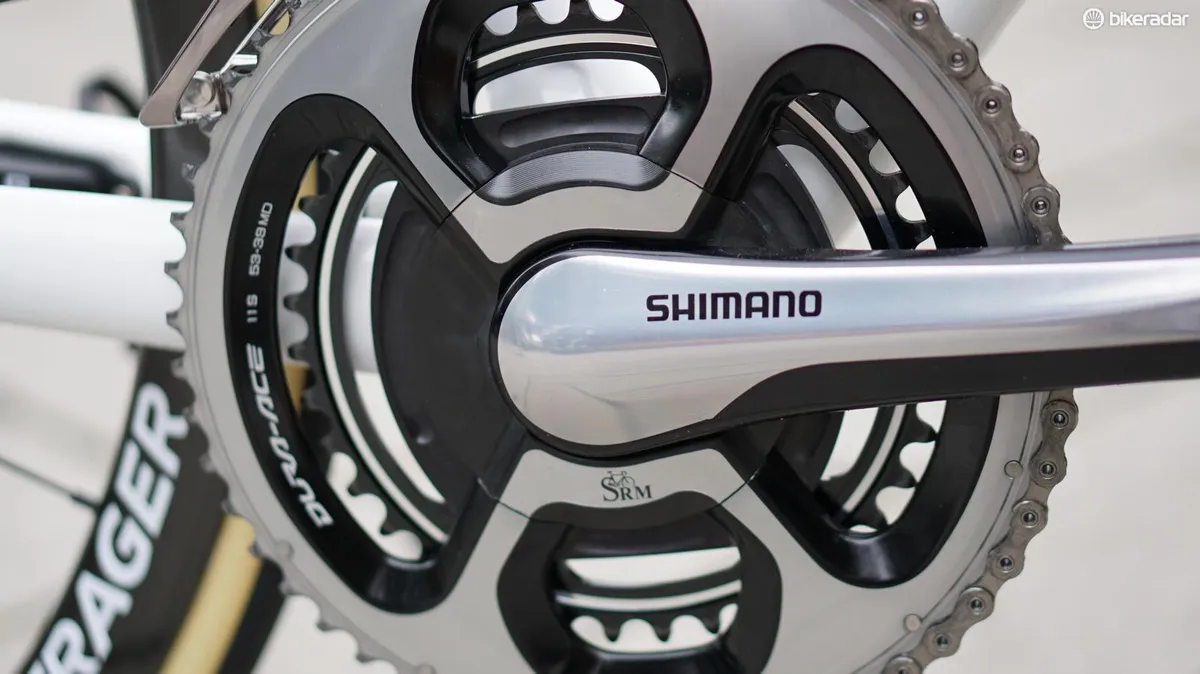
Shimano has not yet delivered on its power meter — it will come in the “near future,” Shimano Europe’s Bert Roesems said — and the 9000 SRM crank works just fine with the 9170 group. So, quite a few Tour riders are using the 9000 crank SRM just calls ‘Shimano 11-Speed SRM’.
A cushioning ride
In the launch of the new Emonda, Trek claims it has not only lightened the frame but improved the ride quality.
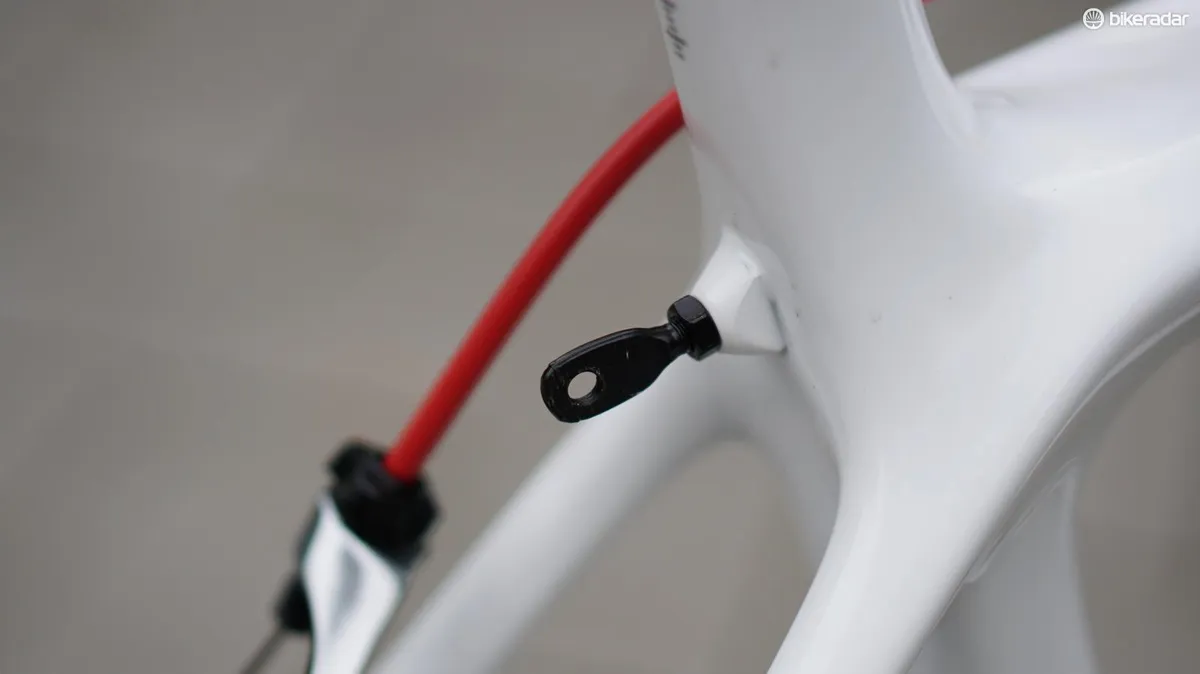
“Alberto has liked the ride of the Madone and has ridden it quite a bit,” said Trek team liaison Matt Shriver. “Now it’s likely that he’ll ride the new Emonda for the whole Tour, not just for the climbing days.”
Contador also keeps his preferred double tape wrap set-up on the Bontrager XXX integrated bar/stem.
And a light ride at that
The previous Emonda was already impressively light at 690g. At the bike’s launch at the 2015 Tour, Trek touted a special build as the lightest production bike in the world.
The 2018 Emonda is lighter still, at a claimed 640g for a size 56cm frame.
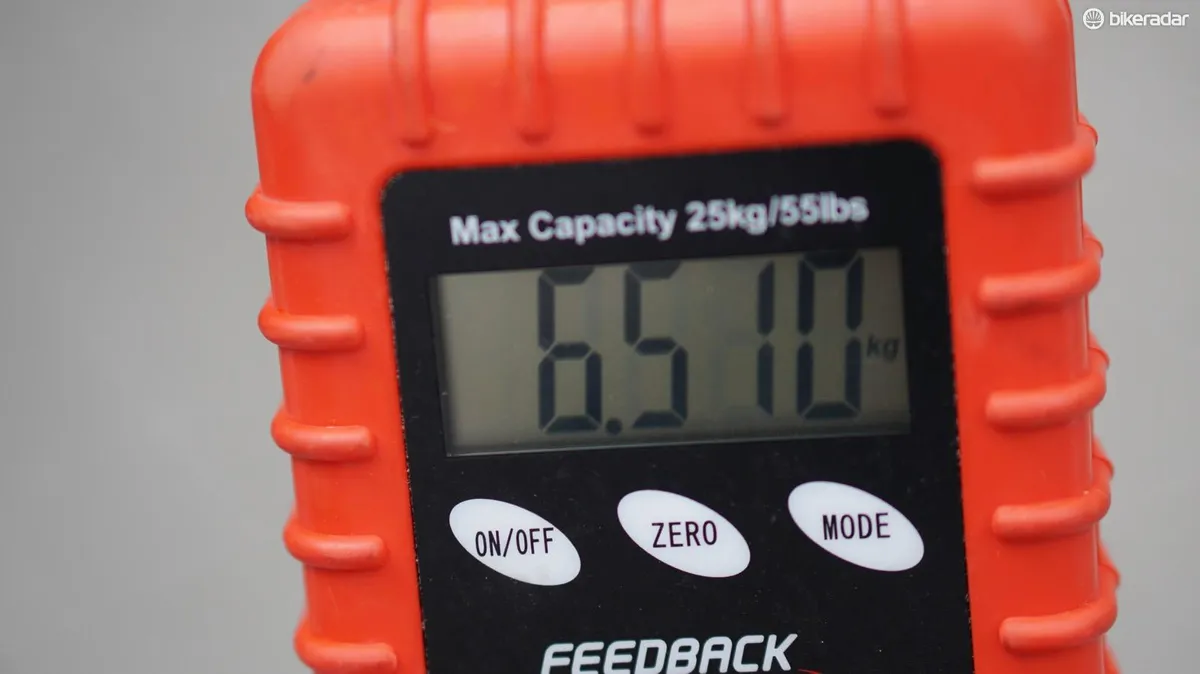
We weighed Contador’s bike as shown here at 6.5kg / 14.3lb before the Tour began. Mechanics had not yet installed the ASO transponder for race timing on the chainstay nor the Velon transponder for live rider data transmission under the saddle. Shriver said that the two together would add about 250-270g to the bike, and then mechanics would add weights as necessary to get the machine up to the UCI’s minimum weight of 6.8kg / 14.99lb.
Check out the gallery above for a closer look at Contrador’s Trek Emonda, and be sure to visit Cyclingnews.com for complete coverage of the 2017 Tour de France.
